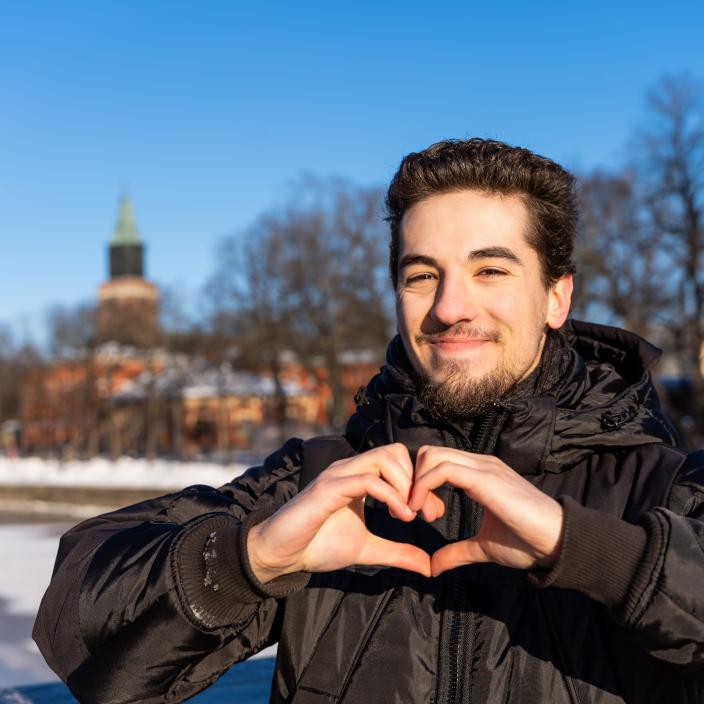What is the Citizens’ Panel?
The Citizens’ Panel is the City of Turku’s way of involving residents in decision-making. Urban residents from different backgrounds are randomly selected for the panel to obtain diverse perspectives.
Deliberating Citizens’ Panels
In Deliberating Citizens’ Panels, it is possible to discuss important city issues with other residents and experts. The aim is to understand things in depth and find common solutions.
How do Deliberating Citizens’ Panels work?
- Preparation: Participants receive information and material on the topic in advance so that they can familiarise themselves with the topic carefully before the discussion.
- Panel discussions: The discussions are organised as a series of meetings. Residents participating in the discussions discuss topics from different perspectives and hear expert presentations.
- Result: At the end of the discussions, the residents prepare recommendations that are sent to the city’s decision-makers for consideration.
Benefits and impacts
Citizens’ Panels and Deliberating Citizens’ Panels make the voice of the residents heard. They increase the transparency of decision-making and help the city administration better understand the needs and concerns of residents. This will ensure better and more communal decisions.
Citizens’ Panels in 2024–2025
Statement by the Citizens’ Panel
- The city must allocate youth work resources in a needs-based manner and invest in school youth work to improve co-operation between schools and youth work. This supports low-threshold preventive work and supports the well-being of children and young people.
- Public transport should be free of charge for all under 18-year-olds in order to support children’s and young people’s access to hobbies and services.
- Turku must continue to invest in children and young people. In particular, preventive and low-threshold services must be easily accessible to them to ensure their strong integration into society.
- Turku is developing an easy-to-use and simple application for communicating its services to residents. Where possible, this should also be available to third-sector operators, for example. The application does not remove the importance of other communication channels.
- The city’s facilities should also be used diversely in recreational activities. For example, school facilities should also be utilised more extensively outside the school day. Schools would also function well as a platform for strengthening inclusion for children and young people.
- Turku must take measures to increase the sense of community among city residents together with various operators.
- Enabling hobbies should be seen diversely. In addition to physical activity, cultural and other youth work activities must be supported and resourced. (Strengthening the Turku model for hobbies)
Impact
The Panel’s recommendations have been incorporated into the budget of the City of Turku in 2025.
Statement by the Citizens’ Panel
The Citizens’ Panel recommends that segregation and the prevention of its impacts be taken into account in the implementation of the operating model.
- More teaching staff for schools to support children and young people to learn the language in which the teaching is provided.
- Reasonable group sizes enable the needs of diverse learners to be taken into account.
- Strengthening the teaching of native languages is important in supporting other learning.
- Strengthening the participation of children and young people in the school environment is essential for the integration of children and/or young people into society.
- In zoning, diverse forms of housing should be taken into account so that ownership and affordable rental housing are mixed early, at the building stage. In the building stock, mixed forms of housing should be taken into account in the long-term planning of housing policy.
- Consideration of green spaces, comfort and well-being must be one of the priorities of zoning. Green spaces must also be increased in older areas and their maintenance must be ensured. Preparations for climate change should be increased through landscaping.
- The planning consultation phase should be developed to be more participatory.
- The introduction of community outreach work in residential areas to create more security in everyday environments. Community outreach work would apply to all age groups and would bring people of different backgrounds, ages and stages of life together in residential areas.
- The urban culture should be more diverse, taking into account Turku residents from different cultural backgrounds. Communities with different cultural backgrounds play a key role in organising these events, and the events increase Turku residents’ awareness of the diversity of the city.
- The city must help its residents if national laws, such as tightening social policy guidelines, cause unreasonable harm. National changes in rents and housing allowance, for example, may have unreasonable consequences for city residents.
Impact
(Under preparation)
